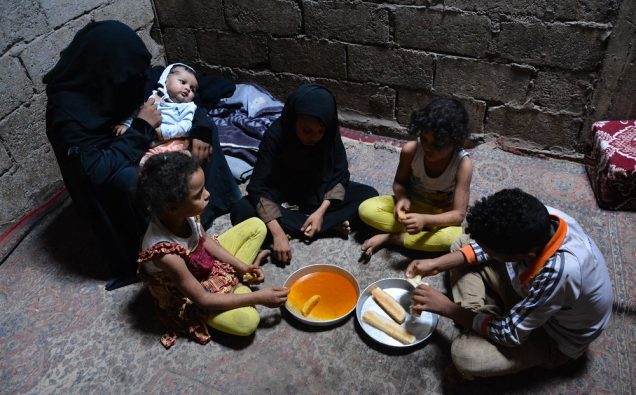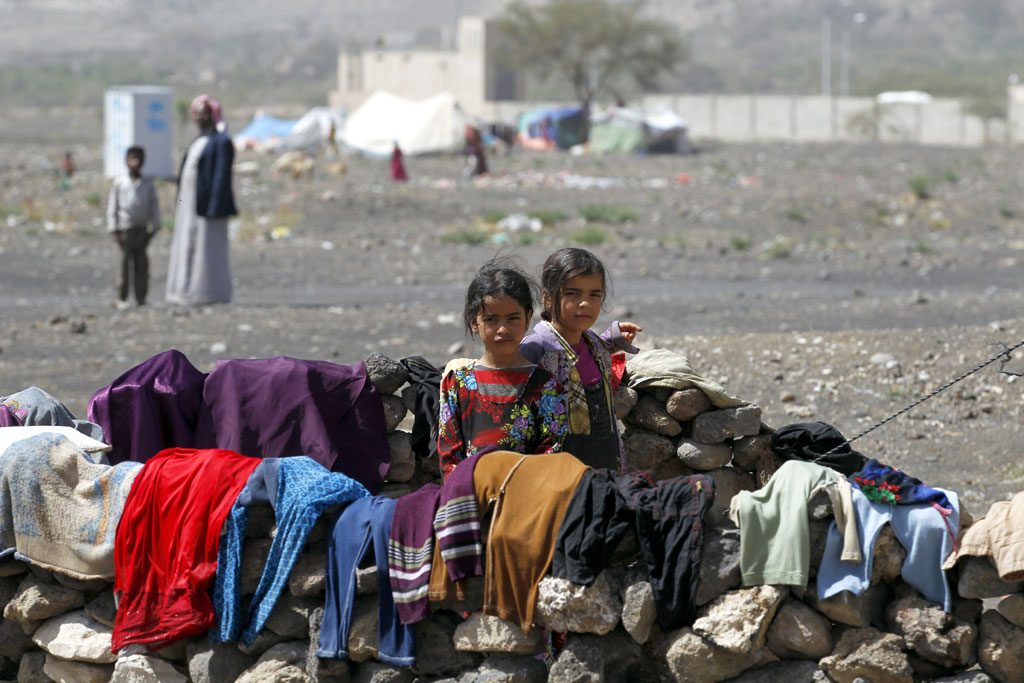
Yemen is reeling from both famine and war with children dying of hunger and families facing the worst ever shortage of food.
The aid agencies have been unable to reach all starving communities in the war and poverty hit country, where the looming “worst famine ever” could expose two million malnourished, pregnant and lactating women at risk of death.
Yemen has been a conflict zone since 2015, when the Iran-backed Houthis ran over parts of the country and the U.S.-armed Saudi Arabia launched a war on its neighbor – one of the least developed countries in the Arab world.
“Lack of food, displacement, poor nutrition, disease outbreaks and eroding healthcare have heavily affected the health and well-being of 1.1 million malnourished pregnant and lactating women, causing numerous cases of premature or low-birth weight babies, severe postpartum bleeding, and extremely life-threatening labor processes,” UNFPA, the UN sexual and reproductive health agency, says.
Raising alarms the agency said this week if the situation continues to deteriorate, up to two million mothers could end up being affected.
The UN says since the conflict escalated in Yemen in 2015 between non-state armed groups and a Saudi-led coalition in support of the Government, constant shelling and bombing has destroyed key civilian infrastructure across the country.
“Although targeting medical facilities is strictly forbidden under humanitarian law, nearly half of the health facilities are no longer operational, including those established to provide reproductive health services. As a result, many of these women go undiagnosed and untreated,” the UN reports.
This past August, for example, Al Thawra, Al Hudaydah’s largest hospital – the only hospital of the area which provides critical neo-natal and emergency care – was attacked, putting the city’s almost 90,000 pregnant women and girls at great risk, the world body said..
“The humanitarian crisis in Yemen is one of the worst in the world, with three quarters of the population requiring some form of life-saving assistance and protection,” according to the UN’s humanitarian coordination office (OCHA).
The ongoing conflict has madecivilians’ access to food increasingly difficult through a combination of ways, including unprecedented inflation, import controls, and limited freedom of movement.
“There is now a clear and present danger of an imminent and great big famine engulfing Yemen: much bigger than anything any professional in this field has seen during their working lives,” UN humanitarian chief, Mark Lowcock told the UN Security Council last week.
The UN says the humanitarian crisis in Yemen is one of the world’s best funded crises, with 71 per cent of the 2018 appeal funded to date. But the needs continue to grow and outpace the response. Working with limited funding, UNFPA’s support to the 184 health facilities that offer reproductive health services may stop if additional resources do not become available urgently, the world body said.


















